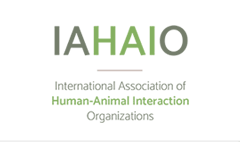Abstract
Studies of the human-animal bond show many positive health effects for pet guardians including a sense of companionship, reduced depression and loneliness, and higher activity levels, yet few studies have examined factors such as how the pet guardians’ health, age, and social networks influence their relationship with and ability to care for their pet. These health factors may affect the ability of older adults to care for their pets, therefore inhibiting them from reaping positive benefits associated with pet guardianship. This qualitative study involved 21 in-depth interviews with older adults, aged 60+, who were pet guardians. Four themes emerged from the one-on- one, in-depth interviews: Accommodations to Aging Changes; Pets and Mental Health; Importance of Formal and Informal Social Supports; and Dogs as Activity Catalysts. Participants reported unique ways in which they adapted their care of pets to limitations as a result of their changing health. Participants reported positive and negative mental health effects of caring for a pet, such as reduced depression and an increase in sadness related to loss. They also reported their pets influence their level of physical activity and frequency of social engagement. Dogs are especially helpful as a means with which to engage with others and increase physical activity. Pet guardianship becomes increasingly difficult with declining health that is often related to aging, but perhaps becomes more important as well. Older adults can utilize formal and informal supports to adapt to age-related difficulties with pet guardianship, thereby enabling them to experience the benefits of caring for pets.
Recommended Citation
Mueller, Ranell L. and Hunter, Elizabeth G.
(2019)
"The Intersection of Aging and Pet Guardianship: Influences of Health and Social Support,"
People and Animals: The International Journal of Research and Practice: Vol. 2
:
Iss.
1,
Article 3.
Available at:
https://docs.lib.purdue.edu/paij/vol2/iss1/3


